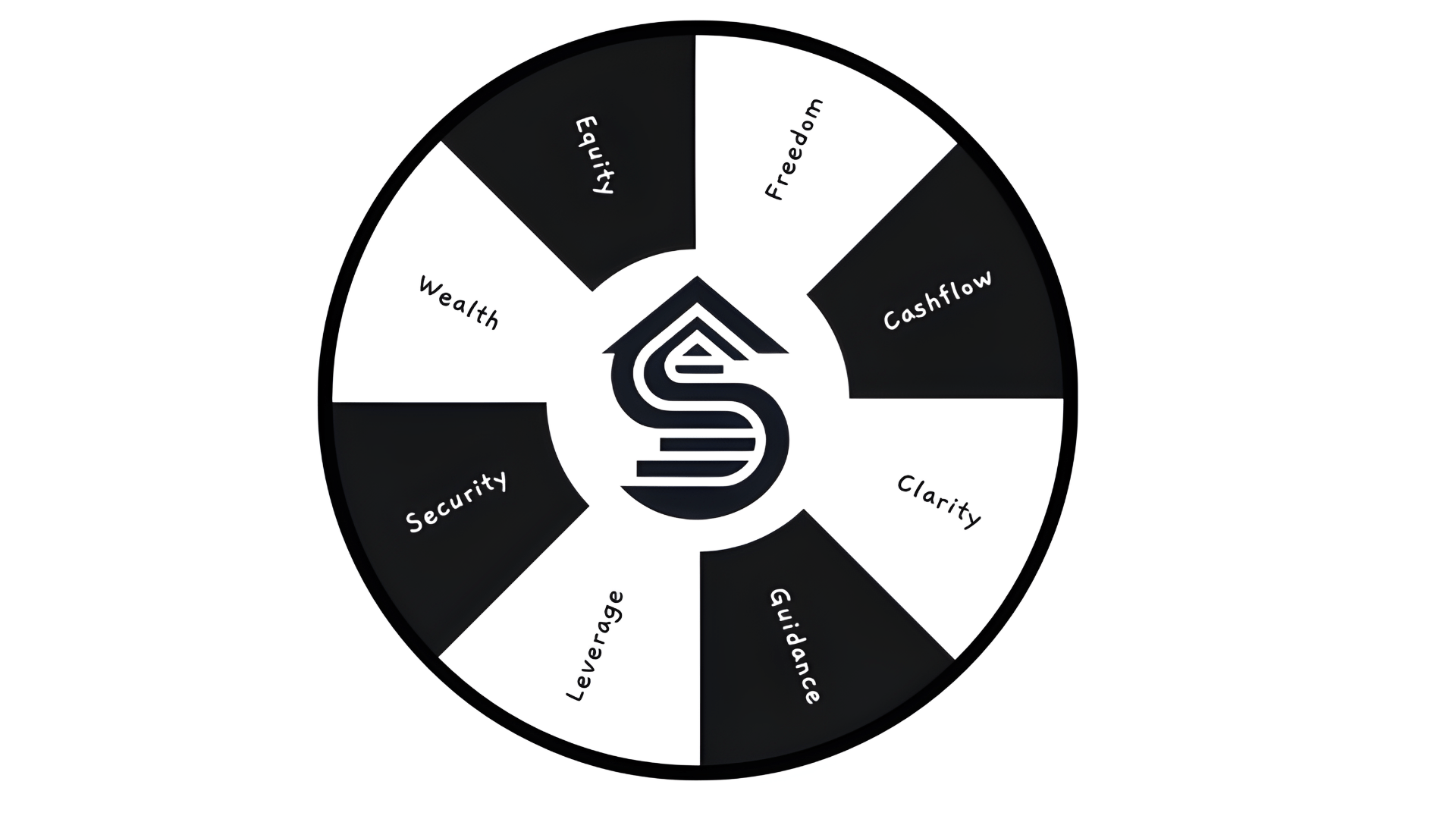
1099 Loan: 7 Smart Strategies for Independent Contractors to Qualify

How a 1099 Loan Simplifies Mortgage Approval for Self-Employed Professionals
Self-employed professionals and independent contractors face unique challenges when applying for mortgages using traditional income documentation. A 1099 loan offers a streamlined qualification path that recognizes your business revenue without requiring tax returns that often understate your actual earning capacity. Whether you write off substantial business expenses or operate multiple income streams, this financing solution evaluates your true financial picture based on gross receipts rather than taxable income.
Key Details: What You’ll Learn About 1099 Mortgage Loans
- A 1099 loan uses your 1099 income forms to qualify for mortgage financing without traditional W-2 employment documentation (IRS 1099 income reporting guidelines)
- Independent contractors, freelancers, gig workers, and consultants can secure financing using 1099 income verification methods (CFPB self-employed mortgage qualification information)
- Properties including primary residences, second homes, and investment properties qualify under a 1099 loan structure
- Lenders calculate qualifying income using 1099 forms without the complexity of full business tax return analysis (Fannie Mae self-employed borrower guidelines)
- A 1099 loan accommodates borrowers with consistent contract income spanning multiple clients or platforms
- Credit profiles with solid payment history strengthen qualification even when income fluctuates seasonally
- Simplified documentation requirements focus on 1099 forms and bank deposits rather than Schedule C business expense analysis (IRS Schedule C business income information)
Ready to explore your options? Schedule a call with a loan advisor.
What Is a 1099 Loan?
A 1099 loan represents a specialized mortgage qualification approach designed for independent contractors and self-employed professionals who receive 1099 income forms rather than traditional W-2 wages. Instead of requiring extensive business tax returns with complex Schedule C analysis, lenders verify your income using your 1099 forms and corresponding bank deposits.
How does 1099 income qualification work? Lenders collect your 1099-MISC, 1099-NEC, or other 1099 income forms from recent tax years to establish your earning patterns. Rather than deducting business expenses shown on Schedule C—which often reduces your qualifying income significantly—a 1099 loan program calculates your income based on the gross amounts reported on your 1099 forms.
The process recognizes that independent contractors often have legitimate business expenses that reduce taxable income but don’t reflect actual cash flow available for housing obligations. By focusing on 1099 income verification, these programs provide more realistic qualification for self-employed borrowers.
Who Benefits Most from a 1099 Loan?
Several borrower profiles find exceptional value in a 1099 loan structure. These programs serve professionals whose income arrives via 1099 forms rather than traditional employment paychecks.
Independent contractors working for multiple clients throughout the year represent ideal candidates for a 1099 loan. Whether you provide consulting services, technical expertise, creative work, or specialized skills on a contract basis, your 1099 forms document consistent earning capacity without traditional employment.
Gig economy workers participating in platforms like rideshare driving, food delivery, freelance marketplaces, or short-term rental management receive 1099 income documentation. A 1099 loan recognizes this modern earning model as legitimate qualifying income.
Freelance professionals including writers, designers, developers, photographers, and consultants typically receive 1099 forms from their various clients. Traditional mortgage programs struggle to evaluate freelance income, but a 1099 loan streamlines the qualification process.
Real estate agents and commissioned salespeople often receive substantial portions of their income via 1099 forms. The variable nature of commission-based earnings complicates conventional qualification, but a 1099 loan focuses on demonstrated earning patterns rather than guaranteed salaries.
Healthcare professionals working locum tenens positions, travel nursing assignments, or per-diem contracts frequently receive 1099 income. A 1099 loan accommodates these flexible professional arrangements without requiring traditional employment verification.
Explore all loan programs to understand your full range of options.
What Documentation Does a 1099 Loan Require?
Understanding the specific documentation requirements helps you prepare for a smooth application process. A 1099 loan simplifies qualification compared to traditional self-employment verification but still requires specific income evidence.
Required documentation typically includes:
- 1099 forms from the most recent 1-2 years
- Personal tax returns showing 1099 income reported
- Bank statements demonstrating deposit patterns
- Credit report authorization
- Property appraisal documentation
- Homeowner’s insurance information
- Standard closing documentation
How many years of 1099 income do you need? Most programs require demonstrating consistent 1099 income for at least 12-24 months. Lenders want to verify that your independent contractor income represents stable earning capacity rather than temporary or sporadic work. Some programs accommodate borrowers with shorter 1099 history when compensating factors like excellent credit or substantial reserves strengthen the application.
Do you need to provide business tax returns? Many 1099 loan programs minimize or eliminate the need for complete business tax return packages including Schedule C analysis. The program focuses on your 1099 forms and personal tax returns showing this income reported, avoiding the complex business expense reconstruction that complicates traditional self-employment qualification.
What about bank statement verification? Lenders typically review bank statements to confirm that deposits correlate with your reported 1099 income. This verification ensures the income shown on your tax documents actually flowed through your accounts, demonstrating real earning capacity.
How Does a 1099 Loan Differ from Traditional Self-Employment Qualification?
The fundamental distinction lies in how lenders calculate your qualifying income and which documentation they require. Traditional self-employment mortgage qualification demands extensive tax return analysis including Schedule C business expenses, depreciation add-backs, and complex income reconstruction. A 1099 loan simplifies this process significantly.
Traditional self-employment qualification:
- Requires 2 years of complete business tax returns
- Analyzes Schedule C showing all business deductions
- Deducts business expenses from gross income
- Adds back depreciation and one-time write-offs
- Requires detailed profit and loss statements
- Often results in lower qualifying income due to tax strategies
1099 loan qualification approach:
- Focuses on 1099 income forms as primary documentation
- Minimizes Schedule C expense analysis
- Calculates income closer to gross 1099 amounts
- Streamlined documentation requirements
- Faster underwriting process
- Higher qualifying income for many borrowers
Why do tax deductions hurt traditional qualification? Smart business owners minimize taxable income through legitimate deductions including home office expenses, vehicle costs, equipment purchases, and business travel. While these strategies reduce tax liability, they also reduce the income shown on your tax returns—which becomes your qualifying income for traditional mortgages. A 1099 loan addresses this disconnect.
Ready to discuss your purchase scenario? Submit a purchase inquiry to explore your options.
What Property Types Qualify for a 1099 Loan?
A 1099 loan program accommodates diverse property categories, providing flexibility for various real estate goals. Understanding which property types qualify helps you plan your home purchase or investment strategy.
Eligible property categories:
- Primary residences in urban, suburban, and rural locations
- Second homes and vacation properties
- Single-family rental properties
- Multi-unit investment properties including duplexes, triplexes, and fourplexes
- Condominiums in approved developments
- Townhomes and single-family attached properties
Can you purchase investment properties with a 1099 loan? Yes, many 1099 loan programs accommodate investment property purchases. Independent contractors building real estate portfolios can leverage their 1099 income to qualify for rental property acquisitions without the complexity of analyzing rental income projections through traditional underwriting.
Are there property condition requirements? Most 1099 loan programs require properties in habitable condition suitable for immediate occupancy or rental. Properties needing extensive repairs, significant safety issues, or major system replacements may require renovation financing or alternative program structures.
What about property location restrictions? A 1099 loan typically accommodates properties throughout the United States including rural areas, small towns, suburban communities, and urban centers. Some programs have state restrictions or focus on specific geographic regions, but nationwide coverage is common.
See how other 1099 earners have successfully used this financing:
How Do You Calculate Qualifying Income for a 1099 Loan?
Understanding the income calculation methodology helps you estimate your potential qualification before applying. A 1099 loan uses a more straightforward approach than traditional self-employment analysis.
What’s the basic calculation method? Lenders typically average your 1099 income over the documented period—usually 12-24 months—to establish your monthly qualifying income. If your most recent year shows $120,000 in 1099 income, your monthly qualifying income would be approximately $10,000 before considering any applicable expense deductions.
Do lenders deduct any expenses from 1099 income? While a 1099 loan minimizes expense analysis compared to traditional programs, some lenders apply a standard expense factor—often 10-25%—to account for basic business costs. This percentage is significantly lower than the actual expense percentages many self-employed borrowers show on Schedule C, resulting in higher qualifying income.
How do multiple 1099 sources affect qualification? If you receive 1099 income from several clients or platforms, lenders typically aggregate all 1099 income to calculate your total qualifying capacity. This approach recognizes the modern independent contractor model where professionals diversify their client base rather than depending on a single income source.
What if your 1099 income is increasing? Lenders favor upward income trends showing business growth. If your most recent year demonstrates significantly higher 1099 income than prior years, underwriters may give additional weight to current earnings when calculating qualifying income.
Calculate your 1099 loan scenarios:
What Credit Requirements Apply to a 1099 Loan?
Credit profile evaluation remains important for a 1099 loan qualification, though specific requirements vary by lender and program. Understanding the credit standards helps you assess your readiness to apply.
Minimum credit score expectations – Most 1099 loan programs establish baseline credit score requirements ranging from 580 to 680 depending on the specific program structure and compensating factors. Higher credit scores typically provide access to more competitive pricing and program flexibility.
How does credit history impact approval? Lenders evaluate your credit report for payment patterns, credit utilization, derogatory marks, and overall credit management. Consistent on-time payments on credit cards, auto loans, student loans, and previous housing obligations demonstrate reliability even when income arrives via 1099 forms.
Can you qualify with past credit challenges? Many 1099 loan programs accommodate borrowers with previous credit issues including collections, charge-offs, or even past foreclosures when sufficient seasoning has occurred. The focus shifts to demonstrating credit recovery and current responsible financial management alongside your documented 1099 income.
Does bankruptcy disqualify you from a 1099 loan? Previous bankruptcy—whether Chapter 7 or Chapter 13—doesn’t automatically disqualify you from a 1099 loan. Most programs require waiting periods ranging from 2-4 years after discharge or dismissal, depending on the bankruptcy type and the presence of extenuating circumstances.
Common 1099 Loan Questions
Can you combine W-2 and 1099 income for qualification?
Yes, many borrowers receive both W-2 wages from part-time employment and 1099 income from independent contractor work. A 1099 loan program can typically accommodate hybrid income situations, using W-2 income through traditional verification methods while applying simplified 1099 income calculation for your contract earnings.
This flexibility particularly benefits professionals transitioning from employment to self-employment, or independent contractors who maintain part-time traditional jobs while building their contract business.
How does seasonal income affect 1099 loan qualification?
Seasonal fluctuations in 1099 income are common across many industries including construction, tourism, event planning, and tax preparation. Lenders typically average your 1099 income over the full documentation period to smooth seasonal variations and establish a consistent monthly qualifying figure.
Documentation strategies for seasonal income:
- Provide multiple years showing consistent seasonal patterns
- Maintain higher cash reserves during off-peak periods
- Demonstrate deposit patterns throughout the year
- Explain your industry’s seasonal nature in documentation
What if you just started receiving 1099 income?
Most 1099 loan programs require demonstrating 12-24 months of consistent 1099 income history. If you recently transitioned from W-2 employment to independent contractor status, you may need to wait until you’ve established sufficient 1099 income history, or explore alternative programs that accommodate shorter self-employment periods.
Some programs make exceptions for professionals transitioning within the same field—for example, a software developer moving from W-2 employment to independent contracting in the same industry might qualify with less extensive 1099 history.
Do 1099 loan programs verify income with your clients?
Unlike traditional employment verification that contacts employers directly, 1099 loan programs typically verify income through your tax returns and bank deposits rather than contacting each client. This approach protects your privacy and simplifies the verification process when you have multiple 1099 income sources.
However, lenders may occasionally request additional documentation like signed contracts, client letters, or business records when income patterns require clarification or verification beyond standard tax documents.
How Do Interest Rates Compare on a 1099 Loan?
Competitive program structures reflect the specialized underwriting approach for independent contractor income. While specific pricing varies based on individual scenarios, understanding the general pricing framework helps you evaluate whether a 1099 loan fits your financial strategy.
What factors influence pricing on a 1099 loan? Several elements affect your specific rate structure:
- Credit score and payment history
- Income stability and documentation strength
- Property type and location
- Equity contribution and funding structure
- Overall financial profile including reserves
Are rates higher than conventional W-2 mortgages? A 1099 loan may carry slightly higher pricing compared to traditional W-2 employment mortgages due to the perceived variability of independent contractor income. However, many borrowers find the pricing differential minimal and worthwhile given the simplified qualification process and higher qualifying income calculation.
Can you improve your rate with stronger qualification factors? Demonstrating multiple years of increasing 1099 income, maintaining excellent credit, providing larger equity contributions, or showing substantial cash reserves often provides access to more competitive pricing tiers within 1099 loan programs.
The total value evaluation should consider both pricing and qualification accessibility. For independent contractors who cannot qualify through conventional programs—or who would qualify for significantly lower loan amounts due to Schedule C expense deductions—a 1099 loan often represents the optimal financing solution despite potentially higher costs.
Considering a refinance? Submit a refinance inquiry to see if this makes sense for you.
What Are the Advantages of a 1099 Loan?
Understanding the specific benefits helps you evaluate whether this program aligns with your financial situation as an independent contractor. A 1099 loan offers distinct advantages for self-employed professionals whose income doesn’t fit traditional employment patterns.
Key advantages include:
Higher qualifying income – By minimizing Schedule C expense deductions that reduce taxable income, a 1099 loan often calculates significantly higher qualifying income than traditional self-employment analysis. Independent contractors who strategically minimize tax liability through legitimate business deductions suddenly qualify for substantially larger loan amounts.
Simplified documentation – Skip the extensive business tax return analysis that complicates traditional self-employment qualification. No profit and loss statements, no depreciation schedules, no complex business expense categorization. Your 1099 forms and personal tax returns provide the primary qualification documentation.
Faster approval process – Without complex business financial analysis, underwriting proceeds more efficiently. Many independent contractors experience compressed timelines from application to approval compared to traditional self-employment mortgages.
Recognition of modern work arrangements – A 1099 loan acknowledges the growing gig economy and independent contractor workforce. Whether you drive for rideshare platforms, freelance in creative fields, or consult across multiple clients, your earning model receives appropriate recognition.
Accommodation of multiple income sources – Independent contractors often diversify income across several clients or platforms rather than depending on a single employer. A 1099 loan naturally accommodates this income structure without the complications of analyzing multiple businesses.
Privacy protection – Avoid sharing detailed business information, client relationships, or proprietary business structures. The focus on 1099 forms provides necessary income verification while maintaining discretion about your business operations.
Alternative Loan Programs for Self-Employed Borrowers and Independent Contractors
If a 1099 loan isn’t the right fit, consider these alternatives for self-employed financing:
- Bank Statement Loan – Uses 12-24 months of personal or business bank deposits instead of 1099 forms for income qualification
- Profit and Loss Loan – Qualifies using CPA-prepared profit and loss statements showing business profitability
- Asset-Based Loan – Leverages investment portfolios and liquid assets for qualification when income documentation is challenging
- No-Doc Loan – Minimal income verification for borrowers with strong credit and substantial assets
- DSCR Loan – For investment properties qualifying based on rental cash flow without personal income documentation
Explore all 30+ loan programs to find your best option.
Not sure which program is right for you? Take our discovery quiz to uncover your goals.
Advanced 1099 Loan Questions
Can you use projected 1099 income for qualification?
Most 1099 loan programs require historical 1099 income documentation rather than projected future earnings. Lenders base qualification on demonstrated earning patterns from previous tax years, not anticipated future income. However, if your most recent year shows significant income growth, underwriters may give additional consideration to the upward trend.
Some specialized programs accommodate professionals with documented contracts guaranteeing specific 1099 income for upcoming periods, but these situations require thorough contract review and verification.
How do business ownership percentages affect qualification?
If you own a business that pays you via 1099 rather than W-2 wages, the ownership structure becomes relevant. Lenders may examine whether you’re essentially self-employed through your own entity or truly an independent contractor for a separate business. The distinction affects documentation requirements and income calculation methodology.
25% or greater ownership typically triggers more extensive business documentation requirements similar to traditional self-employment analysis. Lower ownership percentages receive more straightforward 1099 income treatment.
What if you have gaps in 1099 income?
Employment gaps or periods without 1099 income require explanation and can impact qualification depending on duration and circumstances. Short gaps between contracts—common in independent contractor work—typically don’t disqualify you when overall income patterns demonstrate consistency.
Acceptable gap explanations include:
- Industry seasonal patterns
- Planned time off between contracts
- Professional development or training periods
- Maternity or paternity leave
- Medical situations with recovery
Longer gaps or frequent unexplained income interruptions may require additional documentation, larger reserves, or waiting until more consistent income history establishes.
Can foreign nationals qualify for a 1099 loan?
Foreign national borrowers earning 1099 income in the United States may qualify for specialized 1099 loan programs depending on visa status, income documentation, and lender guidelines. The combination of non-citizen status and self-employment income requires careful program selection.
Foreign national 1099 qualification typically requires:
- Valid visa documentation authorizing U.S. employment
- U.S. tax returns showing reported 1099 income
- Larger equity contributions than U.S. citizens
- Credit profile through alternative verification methods
- Proof of U.S. ties or permanent residency intent
How does cost of goods sold affect 1099 income qualification?
Some independent contractors incur direct costs of goods sold (COGS) that differ from general business expenses. For example, a contractor who purchases materials for client projects and gets reimbursed may show high gross 1099 income with corresponding COGS expenses.
Lenders typically recognize legitimate COGS that directly reduce your income availability, though the treatment varies by program. Documentation might include:
- Detailed accounting showing COGS vs. general expenses
- Industry standards for typical COGS percentages
- Contracts showing client reimbursement structures
- Historical patterns demonstrating consistent COGS ratios
Can you qualify immediately after business structure changes?
Transitioning from an S-corporation or LLC taxed as a corporation to receiving 1099 income creates documentation challenges. While you may have extensive business history, your 1099 income history begins with the structure change.
Some programs accommodate borrowers with long-term business history in the same industry despite recent structure changes, particularly when overall income levels remain consistent. This requires detailed documentation showing business continuity and income stability across the transition.
How do retirement contributions from 1099 income affect qualification?
Independent contractors often make SEP-IRA, Solo 401(k), or other self-employed retirement contributions that reduce taxable income. Traditional mortgage programs add these contributions back to income for qualification purposes, but treatment under 1099 loan programs varies.
Retirement contribution considerations:
- Some programs automatically add contributions back to qualifying income
- Others focus on gross 1099 amounts before retirement deductions
- Documentation of retirement savings patterns may strengthen applications
- Consistent retirement contributions demonstrate financial discipline
What if you receive both 1099-MISC and 1099-NEC income?
Recent IRS changes separated non-employee compensation (1099-NEC) from miscellaneous income (1099-MISC). Many independent contractors receive both forms—1099-NEC for services performed and 1099-MISC for other income like rents or royalties.
Lenders typically focus primarily on 1099-NEC income representing services you actively perform. 1099-MISC income requires additional analysis to determine whether it represents stable income appropriate for mortgage qualification or one-time receipts.
Can you use 1099 income from cryptocurrency or digital platforms?
The growing cryptocurrency and digital economy creates new 1099 income sources including:
- 1099-K from payment platforms
- 1099-B from cryptocurrency exchanges
- 1099-MISC from blockchain-based income
- 1099-NEC from digital marketplaces
A 1099 loan can potentially accommodate these modern income sources when properly documented on tax returns and demonstrating consistent patterns. However, highly volatile cryptocurrency trading income may receive more conservative evaluation than stable service-based 1099 income.
How does state income tax treatment affect 1099 loan qualification?
Independent contractors in states without income tax (like Florida, Texas, or Nevada) show different tax patterns than those in high-tax states (like California or New York). While this doesn’t directly affect 1099 income qualification methodology, it impacts your overall financial picture and debt-to-income calculations.
State tax considerations may influence your effective qualifying income, though a 1099 loan focuses primarily on the gross income shown on your 1099 forms rather than after-tax cash flow analysis.
Ready to get started? Apply now or schedule a call to discuss your situation.
Helpful 1099 Loan Resources
Official Government Guidance:
IRS 1099 Income Reporting Guidelines – Internal Revenue Service official resource explaining 1099-MISC, 1099-NEC, and other 1099 forms used to report independent contractor income, payment thresholds, and filing requirements for self-employed professionals.
IRS Schedule C Business Income Information – Internal Revenue Service guidance on Schedule C profit or loss from business, explaining how independent contractors report income and expenses that affect mortgage qualification calculations.
CFPB Self-Employed Mortgage Qualification Information – Consumer Financial Protection Bureau resource explaining how mortgage lenders evaluate self-employed borrowers, including income documentation requirements and qualification methods for independent contractors.
Industry Organizations:
Fannie Mae Self-Employed Borrower Guidelines – Official Fannie Mae underwriting guidance for self-employed borrowers explaining income calculation methods, documentation requirements, and qualification standards applicable to 1099 contractors.
National Association of Self-Employed Resources – Industry organization providing education, advocacy, and resources for self-employed professionals including guidance on financial management, tax strategies, and business development for independent contractors.
Educational Resources:
SBA Self-Employment Tax Information – Small Business Administration guidance on self-employment taxes, quarterly estimated payments, and tax obligations for independent contractors that affect mortgage qualification income calculations.
IRS Self-Employment Tax Guidelines – Internal Revenue Service comprehensive resource on self-employment tax calculations, Social Security and Medicare obligations, and quarterly payment requirements for 1099 income earners.
Need local expertise? Get introduced to trusted partners including loan officers, realtors, and financial advisors in your area.
Need a Pre-Approval Letter—Fast?
Buying a home soon? Complete our short form and we’ll connect you with the best loan options for your target property and financial situation—fast.
- Only 2 minutes to complete
- Quick turnaround on pre-approval
- No credit score impact
Got a Few Questions First?
Not Sure About Your Next Step?
Skip the guesswork. Take our quick Discovery Quiz to uncover your top financial priorities, so we can guide you toward the wealth-building strategies that fit your life.
- Takes just 5 minutes
- Tailored results based on your answers
- No credit check required
Related Posts
Subscribe to our newsletter
Get program updates and rate insights in your inbox.





